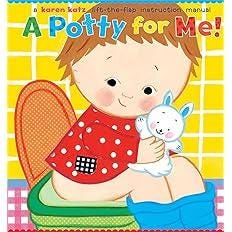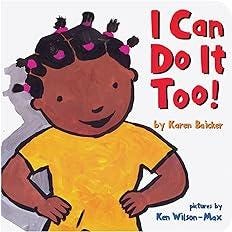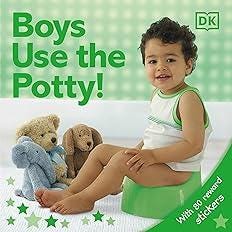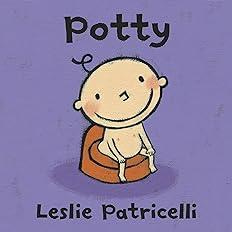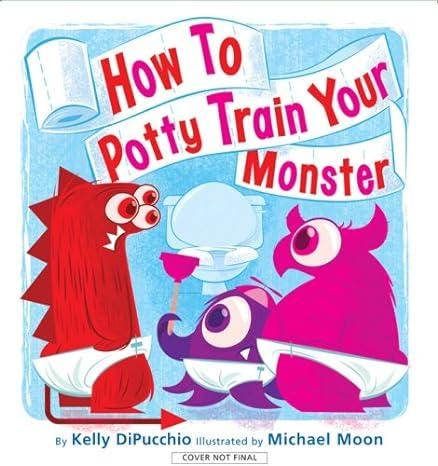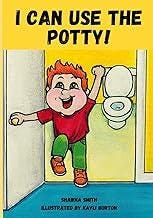Confident Potty Training: A Gentle, Proven Path to Independence
Potty training is a key milestone that fosters independence. With the right approach, parents can make the process smooth and stress-free while building their child’s confidence.
The Journey to Confident Potty Training
Potty training is one of the most significant developmental leaps in early childhood. But for many parents, it can feel overwhelming, frustrating, or even discouraging. While many parents feel pressure to “get it done quickly,” the truth is that successful potty training is not about speed. It’s about readiness, trust, and confidence for both you and your child.
This guide is designed to help you approach potty training with clarity, calmness, and creativity. When approached thoughtfully, potty training becomes a foundation for self-trust and autonomy, two of the most essential traits for lifelong learning. It’s a developmental leap that builds
What Potty Training Teaches
Body awareness – How to recognize internal cues and respond to them.
Communication skills – Expressing needs clearly and confidently.
Self-care routines – Washing hands, wiping, flushing, dressing.
Emotional regulation – Managing frustration, pride, and setbacks.
Independence – Taking ownership of the body and routines.
Social readiness – Feeling confident in group settings like daycare or preschool.
1. Use Picture Books
Children between 18 and 36 months are in a stage of development where they learn best through visual storytelling, repetition, and emotional modeling. Books are a gentle, effective way to introduce potty training. Choose titles that reflect your child’s gender, culture, and experience. According to the American Academy of Pediatrics, toddlers absorb new concepts more effectively when there are three key elements: Visual Learning, Representation, and Storytelling Reinforcement.
Visual Learning: Children absorb information best through images, and seeing characters using the potty encourages them to do the same.
Representation: Selecting books that reflect your child's gender, ethnicity, and experience fosters a sense of connection and reliability.
Storytelling Reinforcement: Books with engaging narratives and cheerful characters can turn potty training into an exciting adventure rather than a daunting task.
How to Choose the Right Potty Books
Tips:
Look for books with simple language and cheerful illustrations.
Choose stories that show children succeeding and feeling proud.
Use books that incorporate hygiene habits, such as handwashing and flushing.
Try interactive books with flaps, textures, or stickers to boost engagement.
Add dolls or stuffed animals to act out the story and reinforce routines.
Learn more about potty training before you expect your child to try it.
Choose books that have characters who succeed and sometimes struggle to help build emotional resilience.
Find books that have new vocabulary like “pee,” “poo,” “flush,” “underwear,” and “wipe”.
Express your excitement and curiosity about the process, rather than being anxious or resistant.
Look for titles:
That feature characters your child can relate to, like those of the same gender, age, or cultural background.
That uses simple, encouraging language.
That shows realistic potty routines.
That includes hygiene steps such as wiping, flushing, and hand washing.
That includes interactive elements such as flaps, textures, or stickers.
2. Teach More About Potty Training
Create a Potty Storytime Ritual
Read a potty book at the same time each day before bath time, after breakfast, or during potty time.
Act It Out with Toys
After reading, use dolls or stuffed animals to act out the story. Let your child teach the toy how to use the potty.
Make Your Potty Book
Print photos of your child pretending to use the potty and wash hands. Add simple captions like “I sit on my potty!” or “I flush when I’m done!”.
Use Books to Introduce Potty Vocabulary
“Flush means to clean the toilet after we go.”
“Underwear is what we wear instead of diapers.”
“Wipe means to clean our bottom with toilet paper.”
Pair Books with Real-Life Practice
After reading, invite your child to:
Sit on the potty even with clothes on.
Practice flushing.
Wash their hands with soap and water.
Pick out their favorite underwear from a drawer.
Introduce Potty Training Through Fun Videos
Children learn best through engaging visuals, and potty training videos can help them understand the process in a fun way.
Daniel Tiger’s Potty Time.
Recommended Potty Books
Potty by Leslie Patricelli.
Everyone Poops by Taro Gomi.
Princess Polly’s Potty / Pirate Pete’s Potty.
Daniel Tiger: Potty Time!.
I Want My Potty by Tony Ross.
3. Effective Potty Training Methods
The truth is, there’s no one-size-fits-all approach, and that’s okay. What matters most is choosing a method that aligns with your child’s readiness, your parenting style, and your family’s daily rhythm. Potty training success depends on selecting the right approach, preparing thoughtfully, and staying committed.
What the Research Says
According to the American Academy of Pediatrics, most children exhibit signs of readiness between 18 and 30 months; however, the average age for complete training is closer to 3 years.
Studies show that positive reinforcement, modeling, and consistency are more effective than punishment or pressure.
Children trained with a child-led or play-based approach tend to have fewer regressions and a more positive attitude toward hygiene.
The Methods
The Child-Led (Readiness-Based) Approach
This gentle, flexible method follows your child’s natural cues and timeline. It’s ideal for parents who want to avoid pressure and build confidence gradually.
Key Features:
Wait for signs of readiness (e.g., dry diapers for an extended period, increased interest in the toilet, discomfort with being wet).
Introduce the potty casually. No pressure to perform.
Allow diaper-free time at home to build awareness.
Use gentle encouragement, not bribes or punishments.
Celebrate effort, not just success.
New Tips:
Use a potty readiness checklist to track signs over time
Let your child decorate their potty chair with stickers or their name
Offer choices: “Do you want to use the big toilet or your potty today?”
Use a mirror so they can see themselves succeeding; it builds self-recognition and pride.
The Routine-Based Approach
This method introduces potty time as part of your child’s daily routine, helping them connect body cues with their bathroom habits.
How to Start:
Offer potty time at consistent intervals (after meals, before naps, and before leaving the house).
Use a visual schedule or potty timer to build consistency.
Pair potty time with a short book or song to make it enjoyable.
Track progress with a simple chart or calendar.
New Tips:
Create a potty time playlist with calming or silly songs.
Use a sand timer or visual countdown clock to help toddlers understand the concept of time.
Early Potty Training Approach
This approach involves starting potty training before age two, relying on consistency, routine, and parent-led structure.
Key Features:
This parent-guided training is introduced proactively before readiness signs fully emerge.
Allow diaper-free time at home to build awareness.
Use a consistent schedule and a potty timer to create predictable habits.
Provide frequent reminders.
Requires continuous effort from parents to support and guide the child.
The Weekend Boot Camp (3-Day Method)
This intensive method is ideal for parents who want to commit to a focused, short-term potty training window. This method requires a full commitment and may not be effective for every child, especially those who are more sensitive or resistant to change.
Key Features:
Choose a weekend with minimal distractions.
Keep your child in underwear or bare-bottomed at home.
Offer frequent potty trips and praise every attempt to use the bathroom.
Stay consistent and avoid reverting to diapers.
New Tips:
Use washable floor mats and have extra clothes ready.
Create a potty success station with books, wipes, and rewards.
Keep a potty log to track patterns and progress.
The Play-Based Approach
This creative method uses pretend play, storytelling, and imagination to teach potty skills in a low-pressure way.
Key Features:
Use dolls, stuffed animals, or action figures to model potty routines.
Read potty-themed books and act out the stories.
Turn each step into a game, e.g., “Can you race to the potty before the timer beeps?”.
Teach handwashing, wiping, and flushing from day one
Use songs or visual cues to reinforce each step
New Tips:
Use role reversal: Let your child teach you or a toy how to use the potty
Make a DIY potty book starring your child as the main character
4. Prep The Bathroom Space
Setting up a supportive and engaging potty training space can boost your child's confidence, independence, and excitement for this significant milestone.
Make the Bathroom Feel Inviting
Add a mirror facing the potty – Some toddlers enjoy watching themselves during potty time, which can help them feel more engaged.
Ensure easy access – Place the potty chair in a convenient, predictable location so your child feels comfortable using it. Consider size, accessibility, and positioning.
Personalize the space – Allow your child to decorate the bathroom with stickers or artwork to make it feel special and welcoming.
Keep Essential Supplies Stocked and Accessible
Have plenty of toilet paper - Having this available and at your child’s reach ensures your child doesn’t feel discouraged by a lack of resources.
Ensure soap and towels are within reach- This encourages independent handwashing habits.
Provide a sturdy step stool - This is great, as it allows your child to reach the sink comfortably, promoting self-sufficiency.
Maintain a Clean and Organized Bathroom
Keep the potty chair in the same spot – Consistency reinforces routine and helps your child remember where to go.
Ensure the bathroom stays tidy and fresh-smelling – A clean, inviting environment makes potty training more appealing.
Limit unnecessary clutter – A simple, streamlined space can help your toddler focus on their potty training goals.
Create a Playful and Encouraging Atmosphere
Keep potty training books nearby – If your child resists sitting on the potty, introduce a book as a fun distraction: “Oh, look at this story! Sit on your potty, and I’ll read it to you.”
Use creative encouragement – Make a fun game or song about using the toilet to keep your child engaged. Example: “Potty time, potty time, let’s go sit and try!”
Introduce fun rewards – Consider sticker charts, small prizes, or verbal praise to make potty training feel like a positive achievement.
Encourage Hands-On Exploration and Practice
Allow your child to sit on the potty chair without pressure, to get familiar with it.
Narrate what you do while using the toilet to help them understand the process.
Let your child practice flushing, washing their hands, and interacting with bathroom tools to build confidence.
Dress Your Child in Potty-Friendly Clothing
Loose-fitting pants or easy-to-remove clothing - This helps your toddler feel more independent.
Consider pull-ups or underwear at home- To ease the transition from diapers.
Foster a Positive and Stress-Free Experience
Be patient and encouraging – Potty training takes time, and your child will thrive with gentle guidance and support.
Celebrate small successes – Every step forward is progress, so acknowledge achievements to boost their confidence and motivation.
Maintain a relaxed mindset – avoid frustration and reinforce the idea that learning is a gradual process that takes time.
How To Make The Bathroom a Welcoming
Decorate the bathroom door with fun artwork or stickers to make it a welcoming space.
Create a pathway with construction paper footsteps leading to the potty to encourage curiosity and participation.
Add cheerful elements, such as colorful posters or themed decorations, to warm and engage the space.
Add real photos of your child doing the potty training steps.
Add cool and fun elements to your child's soap, such as Lego blocks or their name.
Let your child have a special bathroom stuffed animal friend, but please keep it just in the bathroom.
Give your child a sticker each time they try in the bathroom, and gradually reduce the frequency of stickers while maintaining praise and encouragement.
5. Be Positive and Supportive
Parental involvement is key to ensuring success. A consistent and supportive approach can make the process smoother and more enjoyable for both you and your child.
Encourage with Love and Positivity
Shower your child with encouragement, positive words, and praise to build confidence.
Celebrate your child’s tries and successes, reinforcing their efforts with enthusiasm.
Shower your child with love, affection, and positive non-verbal and verbal language.
Make Potty Training Fun and Stress-Free
Introduce potty training as if it’s the most exciting thing in the world, creating anticipation and joy.
Turn the experience into a game or sing songs together, such as "If You Are Happy and You Know It," "Wash Your Hands," or "Twinkle, Little Star," while washing your hands.
Copy your child and also wash your hands at the same time as them.
Support Their Progress and Set Clear Expectations
Keep the potty only in the bathroom and always in the same spot, ensuring familiarity and ease of access.
Let your child know that you’re nearby and available to help whenever they need.
Create a Routine and Keep Consistency
Be present in the bathroom with your child for the first month, providing praise and reassurance.
Make small announcements when you use the toilet: “Mommy is going to the bathroom now!”.
Use clear and simple instructions, such as “Go pee in the potty first, and then we will…”.
Ensure Everyone Follows the Same Plan
Keep all caregivers and daycare providers informed and aligned with the potty training strategy.
Ensure your family members use consistent language and routines so your child isn’t confused.
Mentally Prepare for the Journey
Fully commit to seeing potty training through before you begin.
Stay positive and avoid stress; children can pick up on frustration, which may slow their progress.
Have a supportive parent system and connect with other parents who are going through the same potty training process to share experiences and offer encouragement.
6. Dress Your Child in Easy Clothing
What your toddler wears can either support their independence or create unnecessary obstacles. Tight buttons, tricky zippers, and layered outfits can cause delays, frustration, and even accidents. On the other hand, easy-to-manage clothing empowers your child to act quickly, feel confident, and take ownership of their potty routine.
Why Clothing Choice Impacts Potty Training
Reduces delays: Quick-to-remove clothing helps your toddler reach the potty in time.
Builds independence: Easy outfits enable your child to dress and undress independently.
Boosts confidence: Success with clothing encourages more success with toileting.
Minimizes accidents: The faster your child can undress, the fewer accidents they’ll have.
Strategies to Make Clothing Part of the Learning
Create a Potty-Friendly Wardrobe Bin
Designate a drawer or bin for potty-friendly clothes only.
Let your child choose their outfit from this bin each morning to help build independence and establish a routine.
Practice Dressing Skills During Play
Use dolls or stuffed animals to practice pulling pants up and down.
Label Front and Back with Stickers or Fabric Paint
Help your child learn how to dress themselves by marking the front of underwear or pants with a small sticker or fabric paint dot.
Use Clothing as a Reward
Let your child pick out a special pair of potty underwear or a favorite character outfit once they’ve had a few successful days on the potty.
Create a Visual Dressing Chart
Use photos of your child getting dressed, step by step. Post it near their clothes to encourage independence and reduce frustration.
Best Clothing for Potty Training
Loose-fitting pants, clothing that is comfortable and breathable.
Just pull-ups or underwear around the home.
Elastic Waist Pants & Shorts
Pull-on pants with an elastic waist.
Soft Cotton Underwear to feel wet.
Skirts, oversized T-shirts, pull-ups, two-piece pajamas, and dresses.
Clothing to Avoid During Potty Training
Overalls or rompers with back buttons.
Bodysuits or onesies.
Tight jeans or pants with zippers.
Complicated belts or suspenders.
Layered outfits that take time to remove.
7. Tips for a Smoother Journey
Stay calm during accidents – They’re part of the process. Respond with reassurance, not frustration.
Use positive language – Say “Let’s try the potty” instead of “Don’t pee in your pants.”
Celebrate small wins – Even sitting on the potty is progress.
Involve siblings or peers – Seeing others use the toilet can be a motivating experience.
Offer choices – “Do you want to use the big toilet or your potty chair?”
Keep it short and sweet – Avoid long potty sessions. If nothing happens, try again later.
Develop a Communication System – Teach your child a simple word or sign to indicate they need to use the toilet. Examples: “Potty time,” “Pee-pee,” or “Poo-poo.”
Standardize Bathroom Language – Agree on consistent words for toileting within the family so the child knows what to expect.
Prepare for Setbacks – Plan for moments when your child may regress, resist, or hesitate, using patience and reassurance to support them.
Use Cloth Diapers – Cloth diapers allow children to feel the wetness more acutely, motivating them to transition to potty use faster.
Commit to Consistency – Potty training is a developmental milestone that requires dedication once started, follow through to completion.
Potty Tips for Busy Parents
Keep a spare outfit in every room and your car for quick changes.
Use ziplock bags to store clean clothes and contain soiled ones.
Choose darker colors or patterns to hide minor accidents when out.
Lay out clothes the night before to reduce morning stress.
Let your child go pants-free at home to build awareness.
More Tips
Keep a potty book in your diaper bag or car for on-the-go reading.
Use audiobooks or read-aloud videos when you’re short on time.
Read during diaper changes to start building the potty connection.
Use bedtime as a calm, distraction-free time to introduce potty stories.
Sing and explore – Walk around the bathroom with your child and introduce items through a song or game. Example: “This is a toilet; we pee and poo in it! Toilet, toilet, it starts with T!”.
Hands-on experience – Let your child flush, ask questions, and interact with the toilet in a low-pressure way to build comfort and familiarity.
Create a Sense of Ownership Over the Potty Chair. Make the potty chair feel special and personal to your child before they begin using it officially.
Place a potty chair in the bathroom weeks before training.
Use language that instills ownership: “This is your potty! It’s here for you!”.
Let your child know that you also use the toilet: “Mommy also pees in the toilet”.



